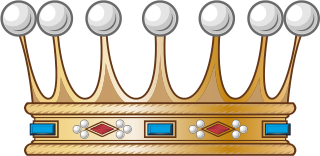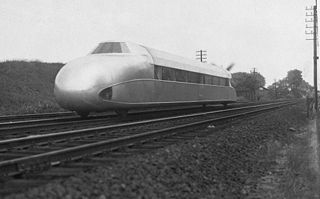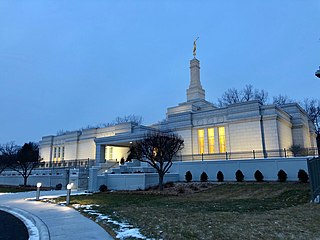
The House of Habsburg, also called the House of Austria, was one of the most influential and distinguished royal houses of Europe. The throne of the Holy Roman Empire was continuously occupied by the Habsburgs from 1438 until their extinction in the male line in 1740. The house also produced emperors and kings of the Kingdom of Bohemia, Kingdom of England, Kingdom of Germany, Kingdom of Hungary, Kingdom of Croatia, Kingdom of Illyria, Second Mexican Empire, Kingdom of Ireland, Kingdom of Portugal, and Kingdom of Spain, as well as rulers of several Dutch and Italian principalities. From the 16th century, following the reign of Charles V, the dynasty was split between its Austrian and Spanish branches. Although they ruled distinct territories, they nevertheless maintained close relations and frequently intermarried.

The House of Windsor is the reigning royal house of the United Kingdom and the other Commonwealth realms. The dynasty is originally of German paternal descent and was a branch of the House of Saxe-Coburg and Gotha, itself derived from the House of Wettin, which succeeded the House of Hanover to the British monarchy following the death of Queen Victoria, wife of Albert, Prince Consort.

The Technical University of Berlin is a research university located in Berlin, Germany. It was founded in 1879 and became one of the most prestigious education institutions in Europe.

Freiherr, Freifrau and Freiin are designations used as titles of nobility in the German-speaking areas of the Holy Roman Empire, and in its various successor states, including Austria, Prussia, Bavaria, Liechtenstein, Luxembourg, etc. Traditionally it denotes the titled rank within the nobility above Ritter (knight) and Edler and below Graf and Herzog (duke). The title superseded the earlier medieval form, Edelherr.

The House of Saxe-Coburg and Gotha is a German dynasty that ruled the duchy of Saxe-Coburg and Gotha, which was one of the Ernestine duchies. It is a cadet branch of the Saxon House of Wettin.

The Schienenzeppelin or rail zeppelin was an experimental railcar which resembled a Zeppelin airship in appearance. It was designed and developed by the German aircraft engineer Franz Kruckenberg in 1929. Propulsion was by means of a pusher propeller located at the rear: it accelerated the railcar to 230.2 km/h (143 mph) setting the land speed record for a petrol powered rail vehicle. Only a single example was ever built, which due to safety concerns remained out of service and was finally dismantled in 1939.

The St. Paul Minnesota Temple is the 69th operating temple of The Church of Jesus Christ of Latter-day Saints. It is located in Oakdale, Minnesota, United States, a suburb of St. Paul, Minnesota.

The Regina Saskatchewan Temple is the 65th operating temple of The Church of Jesus Christ of Latter-day Saints. It is located in East Regina on Wascana Creek close to the University of Regina but well away from the downtown business district in Regina, Saskatchewan, Canada.

The Bismarck North Dakota Temple is the 61st operating temple of The Church of Jesus Christ of Latter-day Saints.
Bezirk Deutschlandsberg is a district of the state of Styria in Austria. Since the 2015 Styria municipal structural reform, it consists of the following municipalities:

I Choose Noise is the third studio album by British progressive breakbeat band Hybrid, released on 4 September 2006 by Distinct'ive Records. The album included recorded symphonic sequences by the Seattle Session Orchestra, and was produced in collaboration with composer Harry Gregson-Williams.

The DRG Class SVT 137 was a class of streamlined diesel train sets of the Deutsche Reichsbahn-Gesellschaft and later of the Deutsche Bundesbahn and the Deutsche Reichsbahn. With a regular maximum speed of 160 km/h (99 mph) and average speeds of up to 132 km/h (82 mph) they were the first high speed trains in central Europe.
Hermann Föttinger was a German engineer and inventor. In the course of his life he submitted over 100 patent applications, but he is most notable for inventing fluid coupling.
httperf is a testing tool to measure the performance of web servers. It was originally developed by David Mosberger and other staff at Hewlett-Packard Research Laboratories.
Jadup and Boel is a 1980 East German drama film directed by Rainer Simon. It was entered into the 16th Moscow International Film Festival in 1989.

The Komet was an international overnight express train service between Germany and Switzerland, which was in operation from 1954 to 2016. Its name reflected the notion that the Comet train and an actual comet can both be described as travelling through the night at high speed. It was introduced in 1954. It became a EuroCity (EC) service upon the launch of the EC network in 1987. It became categorised as CityNightLine (CNL) service in the mid-1990s. With the decision by Deutsche Bahn to terminate all CNL services in December 2016, the Komet ran for the last time on 10–11 December 2016.
Pickwick is an American indie rock, garage rock, R&B band from Seattle, Washington.

Frederick Trump was a German–American businessman and the patriarch of the Trump family. Born in Kallstadt, in the Kingdom of Bavaria, he emigrated to the United States at the age of 16 and started working as a barber. Several years later, in 1891, he moved to the Northwest. He made his fortune by operating restaurants and boarding houses (brothels) in Seattle and the mining town Monte Cristo, and brothels in the Klondike Gold Rush. He later returned to Kallstadt and married. Bavarian authorities accused him of emigrating when he was young to avoid fulfilling his military service, so he lost his Bavarian citizenship; he and his family returned to the United States.
















